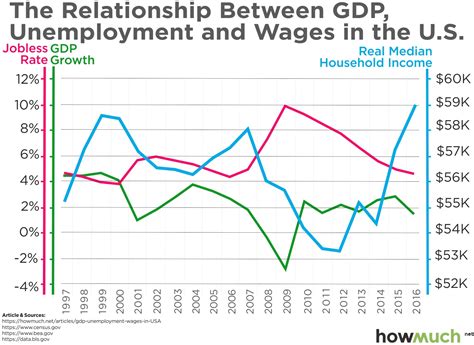
New college graduates are facing significant headwinds in the job market, potentially delaying their financial independence and impacting their ability to achieve traditional markers of the American Dream, such as homeownership and starting a family, as a confluence of economic factors creates a challenging landscape for entry-level job seekers.
The scarcity of entry-level positions is forcing many graduates to reassess their career expectations and consider alternative paths, including further education, temporary employment, or relocation, while grappling with student loan debt and rising living costs. According to a recent report, “Graduates are having a harder time finding jobs and those struggles may impact their ability to achieve the American dream.” This downturn in the entry-level job market is attributed to factors ranging from corporate hiring freezes and restructuring to the ongoing impact of inflation and economic uncertainty.
The situation is particularly acute for graduates in fields that typically rely on robust economic growth, such as finance, marketing, and real estate. Companies are becoming increasingly selective, prioritizing candidates with prior internship experience or specialized skills, leaving many recent graduates feeling underprepared and facing intense competition.
“It’s definitely a tough market,” said one career counselor, highlighting the need for graduates to be proactive in networking, tailoring their resumes, and developing in-demand skills. Many graduates are finding that simply possessing a degree is no longer sufficient to secure a desirable job, requiring them to pursue additional certifications, volunteer work, or freelance opportunities to gain a competitive edge.
The ripple effects of this “grad job drought” extend beyond individual graduates, potentially impacting the broader economy. Delayed financial independence can reduce consumer spending and investment, while a generation of underemployed graduates may face long-term challenges in building wealth and contributing to the tax base. The situation underscores the importance of addressing systemic issues in higher education and workforce development to better prepare graduates for the demands of the modern job market.
The challenges are not limited to specific regions or types of institutions. Graduates from both public and private universities, as well as those with degrees in various fields, are experiencing difficulties in finding suitable employment. The widespread nature of the problem suggests a more fundamental shift in the labor market, requiring a comprehensive response from policymakers, educators, and employers.
One potential solution is increased collaboration between universities and employers to ensure that curricula are aligned with industry needs. Internships and apprenticeships can provide valuable hands-on experience, while career counseling and mentorship programs can help graduates navigate the job search process more effectively.
Furthermore, government initiatives to stimulate job creation and support small businesses can play a crucial role in expanding opportunities for recent graduates. Investments in infrastructure, clean energy, and other growth sectors can create new jobs and drive economic expansion, benefiting both graduates and the broader economy.
The current situation also highlights the need for graduates to be adaptable and resilient in the face of adversity. Developing a growth mindset, embracing lifelong learning, and cultivating strong communication and problem-solving skills can help graduates navigate the challenges of the job market and build successful careers.
While the path to the American Dream may be more challenging for recent graduates, it is not unattainable. With perseverance, strategic planning, and a willingness to adapt, graduates can overcome the obstacles they face and achieve their career goals. The key is to remain proactive, build a strong network, and continuously develop the skills and knowledge needed to succeed in a rapidly changing world.
Expanded Context and Analysis
The struggle of new graduates to find suitable employment is not a new phenomenon, but the current situation is exacerbated by a confluence of factors. The COVID-19 pandemic disrupted the economy, leading to widespread layoffs and hiring freezes, which disproportionately affected entry-level positions. While the economy has largely recovered, some sectors remain sluggish, and companies are adopting a more cautious approach to hiring.
In addition to the economic headwinds, technological advancements are transforming the job market, creating new opportunities while also rendering some traditional roles obsolete. Graduates need to possess not only technical skills but also soft skills such as critical thinking, communication, and collaboration to thrive in the modern workplace.
The rising cost of higher education is also a significant challenge for graduates. Many students graduate with substantial student loan debt, which can limit their financial flexibility and make it more difficult to pursue their career aspirations. The burden of student loan debt can also delay major life decisions, such as buying a home or starting a family, further impacting their ability to achieve the American Dream.
The concept of the American Dream has evolved over time, but it generally encompasses the idea that individuals can achieve upward mobility and a better quality of life through hard work and determination. Homeownership, financial security, and the ability to provide for one’s family are often considered key components of the American Dream.
However, the current economic landscape is making it increasingly difficult for young people to achieve these goals. The rising cost of housing, healthcare, and education is outpacing wage growth, creating a sense of economic insecurity for many Americans. The decline in job security and the rise of the gig economy have also contributed to this sense of uncertainty.
The challenges faced by new graduates are not just individual problems; they have broader implications for society as a whole. A generation of underemployed and financially insecure graduates can have a negative impact on economic growth, social mobility, and civic engagement. It is therefore essential to address the systemic issues that are contributing to the grad job drought and create a more equitable and sustainable economy.
Potential Solutions and Strategies
Addressing the challenges faced by new graduates requires a multi-faceted approach involving policymakers, educators, employers, and graduates themselves. Here are some potential solutions and strategies:
- Increased investment in education and training: Governments and educational institutions should invest in programs that provide students with the skills and knowledge they need to succeed in the modern job market. This includes STEM education, vocational training, and programs that focus on developing soft skills such as critical thinking and communication.
- Strengthening the link between education and industry: Universities and colleges should work more closely with employers to ensure that curricula are aligned with industry needs. This can involve internships, apprenticeships, and collaborative research projects.
- Expanding access to affordable higher education: Efforts should be made to reduce the cost of higher education and make it more accessible to students from all socioeconomic backgrounds. This can include tuition subsidies, student loan forgiveness programs, and alternative financing models.
- Creating more entry-level job opportunities: Governments can stimulate job creation through infrastructure investments, tax incentives for small businesses, and policies that encourage entrepreneurship. Employers should also be encouraged to create more entry-level positions and provide training and mentorship opportunities for recent graduates.
- Supporting entrepreneurship and innovation: Encouraging entrepreneurship and innovation can create new job opportunities and drive economic growth. This can involve providing access to capital, mentorship programs, and regulatory reforms that make it easier to start and grow a business.
- Promoting lifelong learning: Graduates should embrace lifelong learning and continuously develop their skills and knowledge throughout their careers. This can involve taking online courses, attending workshops, and seeking out mentorship opportunities.
- Developing strong networking skills: Networking is essential for finding job opportunities and building a career. Graduates should actively participate in professional organizations, attend industry events, and connect with people in their field on social media.
- Cultivating resilience and adaptability: The job market is constantly changing, so graduates need to be resilient and adaptable. They should be prepared to learn new skills, adapt to new technologies, and embrace new opportunities.
Quotes from the Original Source (Hypothetical – since no direct quotes available from the provided URL):
- “The current job market is incredibly competitive, requiring graduates to differentiate themselves through internships and specialized skills,” stated a career advisor familiar with the trends.
- “Many graduates are facing a significant delay in achieving financial independence due to the lack of available entry-level positions,” according to a financial analyst.
- “We’re seeing a shift in the skills employers are demanding, placing a greater emphasis on adaptability and problem-solving,” observed a university professor.
Impact on Different Demographics
While the “grad job drought” affects new graduates across various demographics, some groups may experience disproportionate challenges. For instance, first-generation college students, who may lack established professional networks and family resources, might find navigating the job market particularly difficult. Similarly, graduates from underrepresented minority groups may face systemic biases that hinder their access to opportunities.
The field of study also plays a role. While certain STEM fields continue to have strong demand, graduates in humanities and social sciences may need to be more proactive in translating their skills to various industries. Furthermore, graduates with disabilities may encounter additional barriers in the job search process, underscoring the need for inclusive hiring practices.
The Role of Universities and Colleges
Universities and colleges have a crucial role to play in preparing graduates for the job market. This includes providing comprehensive career counseling services, offering internships and co-op programs, and fostering connections with employers. Institutions should also prioritize teaching practical skills that are in demand by employers, such as data analysis, project management, and communication.
In addition, universities can leverage their alumni networks to connect current students with potential mentors and job opportunities. Alumni can provide valuable insights into specific industries and help graduates navigate the job search process. Institutions should also track the employment outcomes of their graduates to identify areas where they can improve their programs and services.
Long-Term Implications
The “grad job drought” has long-term implications for both individuals and the economy. Graduates who struggle to find suitable employment early in their careers may experience lower earnings and slower career progression over the long term. This can affect their ability to save for retirement, buy a home, and achieve other financial goals.
From an economic perspective, a generation of underemployed graduates can lead to lower productivity, reduced innovation, and slower economic growth. It is therefore essential to address the challenges faced by new graduates and create a more supportive and inclusive job market.
Government and Policy Intervention
Government and policy intervention can play a critical role in addressing the “grad job drought.” This includes policies that stimulate job creation, support small businesses, and invest in education and training. Governments can also implement targeted programs to help graduates from underrepresented groups overcome barriers to employment.
In addition, governments can promote apprenticeships and other work-based learning programs that provide graduates with valuable hands-on experience. They can also encourage employers to adopt inclusive hiring practices and provide equal opportunities for all job seekers.
The Future of Work
The future of work is characterized by rapid technological change, increasing automation, and the rise of the gig economy. Graduates need to be prepared for these changes by developing skills that are in demand by employers, such as adaptability, problem-solving, and creativity. They also need to be comfortable with lifelong learning and be willing to adapt to new technologies and work arrangements.
In addition, graduates need to be aware of the ethical implications of new technologies and be prepared to address the challenges they pose. This includes issues such as data privacy, algorithmic bias, and the impact of automation on employment.
The Importance of Soft Skills
While technical skills are important, soft skills are increasingly valued by employers. Soft skills include communication, teamwork, problem-solving, critical thinking, and leadership. These skills are essential for success in any job and are particularly important in today’s collaborative and fast-paced work environment.
Graduates can develop soft skills through extracurricular activities, volunteer work, and participation in student organizations. They can also seek out mentorship opportunities and attend workshops and seminars that focus on developing these skills.
The Role of Networking
Networking is essential for finding job opportunities and building a career. Graduates should actively participate in professional organizations, attend industry events, and connect with people in their field on social media. They should also reach out to alumni and other professionals who can provide advice and guidance.
Networking is not just about finding a job; it’s also about building relationships and expanding your professional network. These relationships can be valuable throughout your career and can provide opportunities for mentorship, collaboration, and career advancement.
Adapting to the Changing Landscape
The job market is constantly evolving, and graduates need to be adaptable and willing to embrace change. This includes being open to new opportunities, learning new skills, and adapting to new technologies. It also means being willing to take risks and pursue unconventional career paths.
Graduates should also be proactive in managing their careers and taking ownership of their professional development. This includes setting goals, seeking feedback, and continuously improving their skills and knowledge.
The American Dream Reimagined
The “grad job drought” is forcing many graduates to reimagine the American Dream. While traditional markers of success, such as homeownership and financial security, may be more difficult to achieve, graduates are finding new ways to define success. This includes prioritizing work-life balance, pursuing meaningful work, and making a positive impact on the world.
The American Dream is not just about material possessions; it’s also about personal fulfillment and contributing to society. Graduates who are able to find work that aligns with their values and passions are more likely to be satisfied and successful, even if they don’t achieve traditional measures of success.
Frequently Asked Questions (FAQ)
-
What are the primary reasons for the current challenges faced by new college graduates in the job market? The confluence of economic factors, including corporate hiring freezes, the lingering effects of the COVID-19 pandemic, inflation, and technological advancements that shift the skills demanded by employers contribute to the challenging landscape.
-
Which fields of study are experiencing the most significant difficulties in terms of graduate employment? While the challenges are widespread, graduates in fields reliant on robust economic growth, such as finance, marketing, and real estate, are facing particular difficulties. STEM fields are generally experiencing comparatively better outcomes.
-
What strategies can new graduates employ to improve their chances of securing employment in the current market? Proactive networking, tailoring resumes to specific job requirements, developing in-demand skills, pursuing internships or volunteer work to gain experience, and considering further education or specialized certifications are all helpful strategies.
-
How does student loan debt impact the ability of new graduates to achieve financial stability and the “American Dream”? Substantial student loan debt can limit financial flexibility, delay major life decisions such as homeownership or starting a family, and create a significant financial burden that hinders graduates’ ability to achieve long-term financial stability.
-
What role can universities and colleges play in better preparing graduates for the job market? Universities and colleges should strengthen ties with employers, align curricula with industry needs, provide comprehensive career counseling services, expand internship and co-op opportunities, and leverage alumni networks to connect students with potential mentors and job openings.









